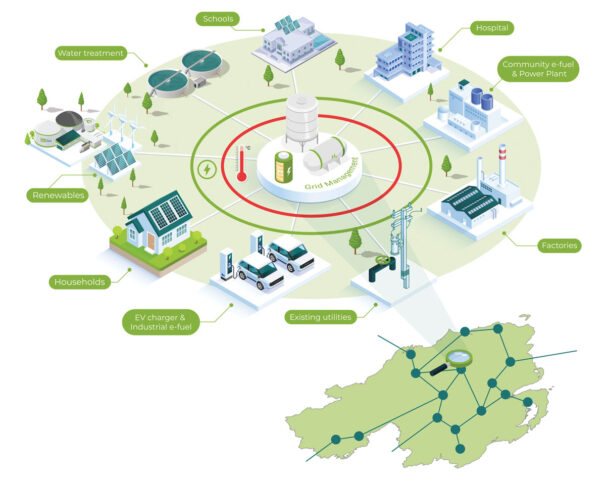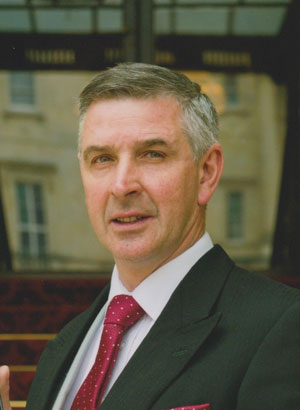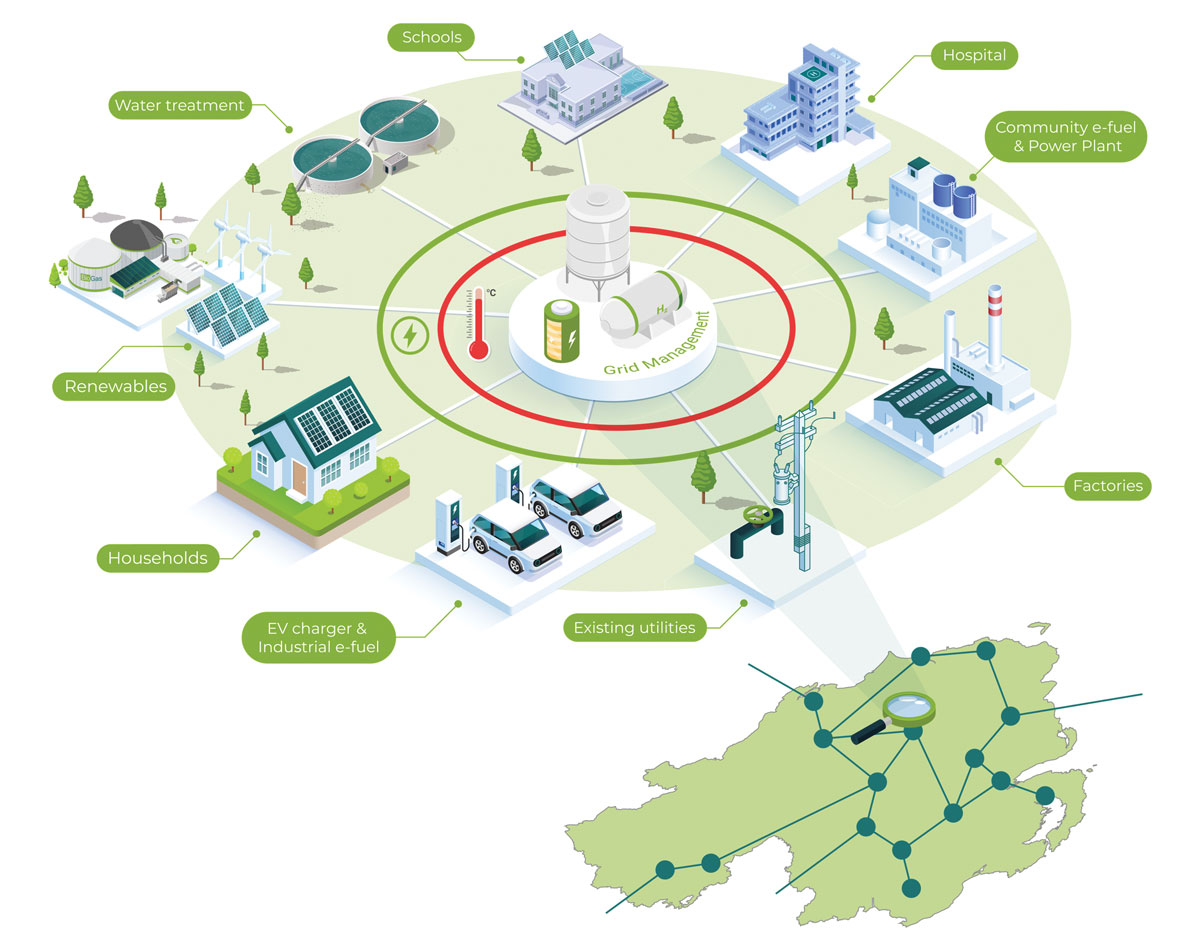Integrating solar PV into the grid
27th May 2025
Energy commitments in Programme for Government 2024-2027
27th May 2025Building bridges: Innovating to keep the lights on

Green Industrial Hub
 The Centre for Advanced Sustainable Energy (CASE), set up by Invest NI, has been instrumental in helping Northern Ireland’s industry and policy makers to innovate. It also facilitates the development of strategies and pathways to a future where indigenous energy production can deliver energy security, while improving the environment, and enabling more sustainable use of native resources.
The Centre for Advanced Sustainable Energy (CASE), set up by Invest NI, has been instrumental in helping Northern Ireland’s industry and policy makers to innovate. It also facilitates the development of strategies and pathways to a future where indigenous energy production can deliver energy security, while improving the environment, and enabling more sustainable use of native resources.
CASE was originally established as a competence centre to support innovation in sustainable energy led by industry demand, bridging the gap between academic research excellence and industry need, whilst supporting and underpinning the government policy decision making process. CASE is a partnership between Queen’s University Belfast, Ulster University, and AFBI which has been at the forefront of addressing Northern Ireland’s renewable energy, decarbonisation, and circular economy challenge. It supports the development of new products and services while increasing productivity and competitiveness.
CASE has developed extensive expertise in the circular bioeconomy and a portfolio of research that has highlighted the potential of biomethane to the broader Northern Ireland Economy. Supported scientific research has shown the potential of anaerobic digestion (AD) using native organic nutrient resources to displace fossil gas from the gas network which creates local prosperity and cuts expensive importation of fossil fuels. Additionally, CASE work has shown the potential to greatly reduce both nutrient and ammonia pollution through processing animal wastes via AD as well as permanently capturing atmospheric carbon dioxide through processing digestate from AD into biochar. This opens up opportunities to provide soil conditioners, biofertilisers, and low carbon cement and concrete products.
Key to success of these approaches has been the demonstration that these benefits can be achieved economically, supporting the agri-food sector and rural communities while also allowing the decarbonisation of other industries such as construction, transportation, and manufacturing.
While CASE’s original mission focused primarily on developing new energy technologies, its work has evolved to reflect the broader priorities of sustainability, circular economy thinking, and integrated regional development.
By connecting Northern Ireland’s energy, manufacturing, and agriculture sectors, innovative low-carbon products and services can be created while reducing emissions from existing industries and delivering community dividends.
This ongoing work has identified a number of priority areas for consideration:
Turning excess nutrients into value: Many by-products across Northern Ireland remain undervalued and underused yet they hold real potential to be transformed into valuable inputs for new industries. Animal slurry, food waste, and other agricultural residues, for instance, can be converted into biomethane through AD. Waste heat from industry can be captured to power district heating systems, excess nutrients can be repurposed into bio-based fertilisers, and captured CO2 can be used to produce synthetic fuels or enhance crop growth in vertical farms.
Systems thinking and co-location: Producing green fuels and low-carbon products has traditionally been more expensive than fossil-fuel alternatives. However, by designing systems that co-locate complementary activities – such as waste processing, fuel production, and heat use – many of these costs can be reduced. A joined-up, systems-based approach enables businesses to share resources, reduce inefficiencies, and lower production costs. In some cases, this can make low-carbon goods and fuels cost-competitive without the need for ongoing subsidy.
A practical approach to carbon capture for Northern Ireland: Unlike some larger countries, Northern Ireland does not have many major single-point sources of carbon emissions. Instead, emissions come from a large number of smaller, dispersed sources, making traditional carbon capture and storage approaches – such as transporting CO2 to offshore geological formations – economically unviable. Instead, new approaches that capture CO2 for use in local industries could both offset capture costs and potentially create new revenue streams. For instance, CO2 could be mineralised using local basalt rock or combined with nutrient-rich materials to create fertilisers, supporting carbon sequestration in soil.
Delivering social, environmental and economic benefits together: A circular, systems-based model for decarbonisation in Northern Ireland can be designed to achieve multiple objectives at once – environmental, social, and financial. For example:
• waste heat from industrial sites or power generation could be used to run district heating networks, helping to reduce fuel poverty and cut household energy bills; and
• recovering nutrients from agricultural waste to make tailored fertilisers could significantly reduce water pollution, helping to tackle the algal blooms challenges in Lough Neagh.
At CASE, this understanding has led to the development of a practical model for green industrial hubs across Northern Ireland. These hubs build on local strengths and infrastructure to create financially viable, low-carbon industries without the need for long-term public subsidy. Each hub is shaped by its unique local context – resources, markets, and existing industries – and designed to integrate energy, carbon, and material flows. For example, a hub near a port may focus on producing marine e-fuels while also providing heat for nearby housing or civic buildings.
This approach offers a route to inclusive, localised growth that supports net zero targets, creates high-value jobs, and strengthens resilience while also enhancing environmental quality and reducing the cost of living.
Progress towards a healthier and sustainable society and economy has never been more vital. At a time of geo-political uncertainty and increasingly stressed environment, Northern Ireland must build on our success in utilising its own resources to transform to a more self-sufficient, and energy secure economy.
CASE continues to evolve to best meet the needs of Northern Ireland’s industry, government, and wider society. We have had great success and look forward to continuing being instrumental in providing the science and rationale behind innovations and policy choices that need to be made for a future prosperous and sustainable region, turning challenges into opportunities.
Ian Marshall
Head of Business Development and Policy
Centre for Advanced Sustainable Energy (CASE)
Queens University Belfast
W: www.case-research.net


